-
TrackoBit
Manage commercial vehicles with the new-age Fleet Management Software
TrackoBit -
TrackoField
Streamline your scattered workforce with Field Force Management Software
TrackoField -
Features Resources
-
Blog
Carefully curated articles to update you on industrial trends. -
White Paper
Insightful papers and analysis on essential subject matters. -
Glossary
Explore an alphabetical list of relevant industry terms. -
What’s New
Get TrackoBit & TrackoField monthly updates here. -
Case Study
Explore the cases we solved with our diverse solutions. -
Comparisons
Compare platforms, features, and pricing to find your best fit.
-
About Us
Get to know TrackoBit: our team, ethos, values, and vision. -
Careers
Join the most dynamic cult of coders, creatives and changemakers. -
Tech Support
Learn about our technical support team and services in detail. -
Events
Check out the exhibitions where we left our marks and conquered. -
Contact Us
Connect with us and let us know how we can be of service.
Advantages and Disadvantages of Dashcam
- Author:Tithi Agarwal
- Read Time:8 min
- Published:
- Last Update: December 13, 2024
Table of Contents
Toggle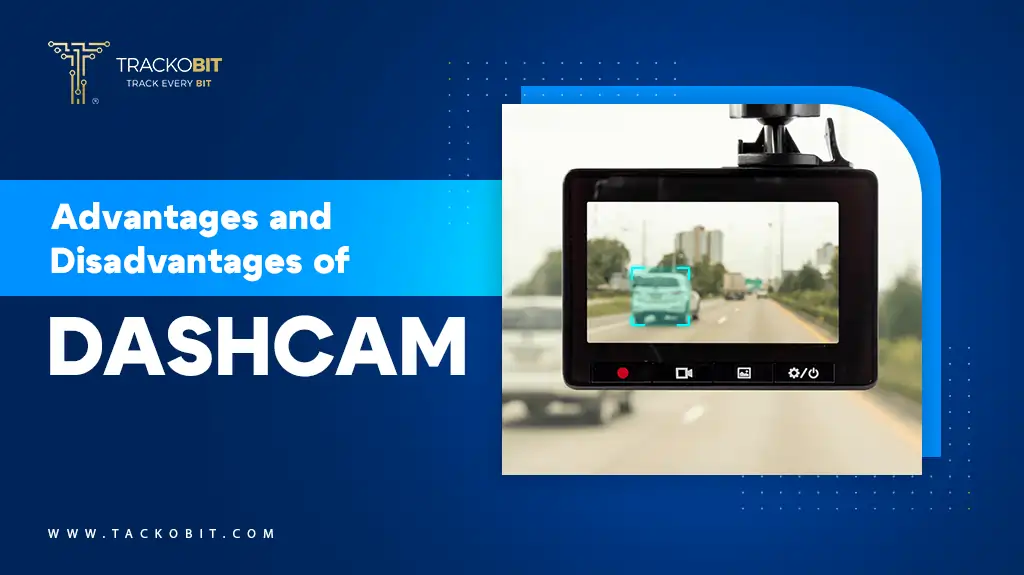
Are you on the fence about installing dashcams in the vehicles? Well, here is a detailed list of the advantages and disadvantages of dashcams that will help you make your decision.
Table of Contents
Toggle
Reckless drivers or inattentive drivers are a leading cause of why fleet operations go array. Driving on the road is unpredictable, and accidents can happen even if it’s not your driver’s fault. However, fleet owners can ensure drivers are diligent and are concentrating on the road with the help of dashcams. A lot of accidents can be prevented this way.
But like anything else, there are advantages and disadvantages of dashcams. For fleet owners or managers, dashcams are always of great importance as they are able to monitor their drivers’ performance. At the same time, drivers feel that they are being monitored or might feel distracted by its presence.
To help you clear out the fog around installing dashcams in your vehicles, read this article to find out the pros and cons of dashcams.
How Does a Dash Cam Work?
Dashcams employ a combination of hardware components and software algorithms to capture and store video data. Many dashcams utilise loop recording, where recorded data is overwritten cyclically on the storage medium (usually an SD card).
Advanced models may incorporate accelerometers or gyroscopic sensors to detect abrupt changes in acceleration or deceleration.
GPS modules are integrated to log geographical coordinates and speed data, providing additional context to recorded events. Some dashcams also offer Wi-Fi or cellular connectivity for remote access and real-time streaming. Overall, these technical features enhance the functionality of dashcams, making them valuable tools for both documenting driving experiences and providing critical evidence in case of accidents.
Advantages of Dashcam
There are multiple benefits of installing dashcams in your fleet, such as:
Evidence Against Road Rage and Rash Driving
Certain dashcams come equipped with an accident detection function that captures the moments preceding a collision or other incident. The dashcams record activities depicting rash driving, showing off-road rage, etc. This can be a valuable source of proof for filed claims.
Additionally, dashcams can show evidence of other people’s reckless driving, which can support your legal case. Footage of careless or even intoxicated drivers driving could be used to demonstrate this.
Evidence for Lawsuits
In an accident lawsuit, proving liability may be the most challenging aspect. The court is frequently compelled to use firsthand testimony. Fleet owners or drivers with dashcam footage have unbiased evidence to demonstrate to the court and insurance provider. Depicting clearly what happened and who is at fault.
Encourages Safer Driving
The video footage recorded by dash cams can also be used to encourage safer driving and improve drivers’ driving skills. For example, fleet owners can use the footage to show their drivers how they drove, which can help instill good habits in newer drivers.
Some dash cams come equipped with sensors that can detect sudden movements or impacts. This can be used to monitor driver behaviour, alerting drivers to dangerous driving habits such as harsh braking or sudden acceleration. They also have built-in screens displaying speed and other information, allowing drivers to monitor their driving habits and adjust as needed.
Oversees Vehicles in Case of Driver’s Absence
Fleet owners are seriously concerned about vehicle theft and vandalism. In case the vehicle is broken into or vandalised, you will have video evidence to provide to the police and insurance provider, all thanks to dashcams.
There is a parking mode feature on a lot of dash cams that enables them to record while the vehicle is parked and the engine is off. This can offer more protection against theft or vandalism as dashcam’s footage can be used to identify and apprehend those responsible.
Motion sensors are also a popular feature in most dash cams that recognise movement around the car, which activates the recording feature and records any possible offenders or miscreants.
Your Insurance Company Will Love You
The capacity of a vehicle’s dash camera to lower insurance costs is a much-loved benefit. If your vehicle insurance company discovers that your vehicle has dash cams installed as extra security, they frequently give you a discount. You will find most companies providing a huge discount of up to 20%. This implies that by acquiring and utilising this camera, you will be able to keep your auto insurance policy at a reduced premium.
Easy to Install and Use
Dash cams are incredibly easy to install and operate. All you need to do is mount the camera on the windshield, plug it into a power source such as a cigarette lighter port, and then start recording.
Using the device itself should also be simple; most dash cams have intuitive menus, and many come with voice commands, so drivers don’t even need to take their eyes off the road.
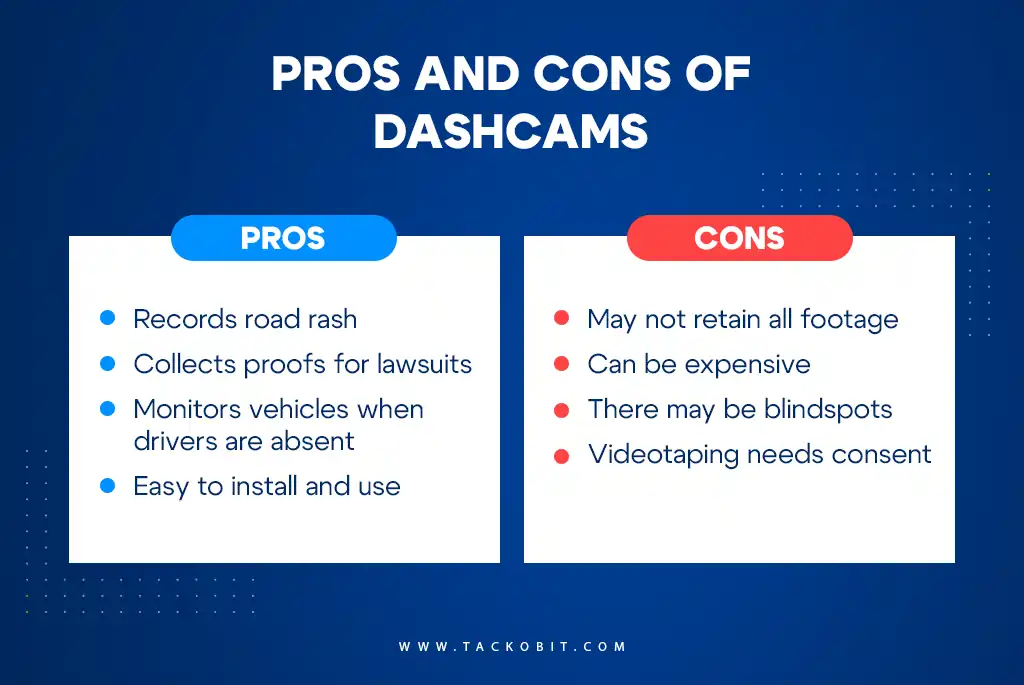
Disadvantages of Dashcam
Let us analyse some of the disadvantages of installing dashcams in vehicles.
Can be a Distraction
It’s possible for a driver to become distracted by the dash cam. These cameras are typically mounted on the dashboard or the windscreen. The driver’s gaze is primarily fixed on the camera, and because of their size, these can create a blind spot when driving. Unless drivers are experienced, it may be difficult for them to focus on the road while they are in front of them.
Secret Videotaping is Against the Law in Some States
In certain states, dashcams may give rise to legal issues. Massachusetts is one of the states where it is illegal to record someone on camera without their permission. If a fleet owner records drivers without the drivers’ knowledge, they risk being detained, prosecuted, or fined. Ensure you know the consent regulations in your state and that using your dashcam complies with them.
May not Retain or Record all Footage
If your dashcam is an older model, it will probably cease recording as soon as the memory card is full. Loop recording on the more recent dashcam models causes the camera to start recording over previously recorded material. In either case, you might unintentionally erase crucial video.
Dashcams can be Expensive
Dashcams are a terrific tool for keeping an eye on driving and recording accident scenes. The technology can be pricey, though. While some dash cam systems come with integrated displays and memory cards for simple installation, others need extra parts, including memory cards and wire harnesses, which can get expensive.
There Might be Blind Spots
Some dash cameras may not pick up items outside of their field of vision or have blind zones when a car is turning or changing lanes. Before investing in a system, it’s critical to be aware of these potential constraints to precisely determine the video quality and coverage the camera will provide.
Incorrect Positioning Causes Obstruction
Though dashcams can be incredibly convenient for recording views during long drives, but it’s important to ensure you mount them correctly over your vehicles. But obvious drivers need a clear view of the road ahead at all times during their trip, and any obstruction in the view can lead to accidents.
Pro tip – There are some parts of the windshield where mounting a dashcam would cause major obstruction, such as the thin strip on the very bottom or the wide strip at the top.
Dashcams and Video Telematics: Superhit Pairing
Dashcams and video telematics are closely related technologies that leverage video recording and data analytics to enhance safety, security, and efficiency. This is especially effective in the automotive and fleet management sectors.
Dashcams incorporate features like GPS, accelerometers, and loop recording to enhance functionality. Video telematics combines this data with video footage captured by cameras to offer a comprehensive view of a vehicle’s operation.
The systems analyse video data in real-time, providing insights into driver behaviour, road conditions, and potential risks. These systems can offer features such as driver coaching, fleet tracking, and automated alerts for events like harsh braking or sudden acceleration.
Together, dashcams and video telematics contribute to improved safety, accountability, and operational efficiency for individual drivers and fleet operators alike. They play a crucial role in mitigating risks, reducing accidents, and optimising vehicle performance.
Video telematics has two components: ADAS and DMS
Advanced Driver Assistance Systems (ADAS) leverage dashcams and other technologies to enhance vehicle safety. Dashcams play a crucial role in ADAS by capturing visual data from the vehicle’s surroundings, which is then analysed by sophisticated algorithms to identify potential risks or hazards. Several ADAS features rely on dashcams, including:
- Lane Departure Warning
- Forward Collision Warning
- Automatic Emergency Braking
- Traffic Sign Recognition
Even the government is pushing for automobiles to be integrated with ADAS systems as it recognises their potential for preventing road accidents and improving safety.
Driver Monitoring Systems (DMS) leverage dashcams to enhance vehicle safety by monitoring the driver’s behaviour and alerting them to potential risks or signs of distraction or fatigue. DMS utilises dashcams’ visual data and advanced algorithms to assess the driver’s state in real time. Here are some ways in which DMS is utilizing dashcams:
- Drowsiness Detection
- Distraction Monitoring
- Driver Identification
- Posture Analysis
- Alerts and Intervention
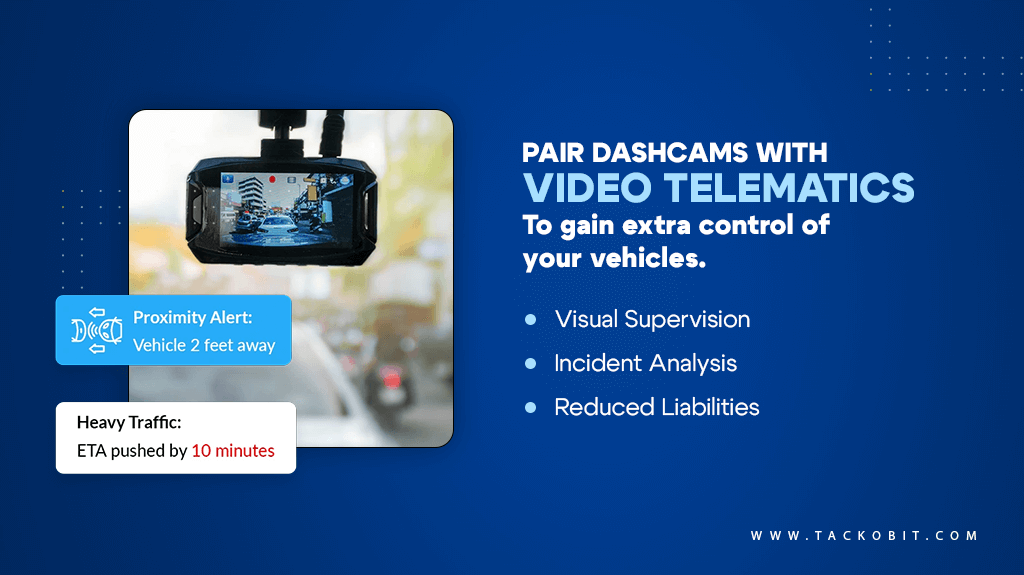
Conclusion
Installing dashcams in your fleet can greatly benefit fleet-dependent businesses. Not only will they be able to ensure safer driving but also bring down the rate of accidents, financial losses, and the need for constant vehicle maintenance.
With great features come great downsides too. Dashcams may appear advantageous on so many levels, but they still have some disadvantages that fleet or vehicle operators stay informed or cautious about. However, the pros definitely outweigh the cons.
TrackoBit offers AI-enabled video telematics software that is compatible with a wide variety of scaling dashcams. The software leverages the video footage acquired from the dashboard to analyse bad driving, chances of collision, or distracted driving behaviour. The software shoots alerts of the same to managers and drivers.
Interested? Schedule a demo now!
Frequently Asked Questions
-
What are the disadvantages of dash cam?
Some of the disadvantages of dash cams are: - Can be a distraction - Secret videotaping is illegal - May not retain all footage - Dashcams can be expensive - There may be blindspots - Incorrect positioning can be an obstruction
-
Does a DashCam reduce battery life?
No, dashcams will not drain your battery as they typically use less than 5 watts when recording. Even less when in parking mode.
-
Is Dashcam legal in India?
Yes, dashcameras are legal in India. But it is vital to ensure that the cameras do not obstruct the driver’s view or violate any privacy laws.
-
How much storage do I need for my dashcam?
The amount of storage needed for a dashcam depends on the video resolution and frequency of recording. Generally, a 32GB or 64GB memory card is sufficient for most users.
-
What is the advantage of a dash cam?
Some of the pros of dashcams are: - Evidence against rash driving - Evidence for lawsuits - Encourages safer driving - Improves driving skills - Oversees vehicles in case of driver’s absence - Easy to install and use
-
Is it worth having a dash cam?
Yes, it is always best to have dashcams in the vehicles as it can improve driving skills, ensure safer driving and, incase of fleet owners, provide them greater visibility of the drivers.
-
Can you use your phone as a dash cam?
Yes, it is possible to use your phone as a dash cam by downloading a dash cam app and securing it to your dashboard with a phone holder. However, it may not be as reliable or effective as a dedicated dash cam.
-
Can a dashboard camera be used to monitor my parked car?
Yes, many dash cams have parking mode capabilities, which allow them to monitor the vehicle even when the ignition is turned off. This can provide added security against theft or vandalism while the car is parked.
Tithi Agarwal is an established content marketing specialist with years of experience in Telematics and the SaaS domain. With a strong background in literature and industrial expertise in technical wr... Read More
Related Blogs
-
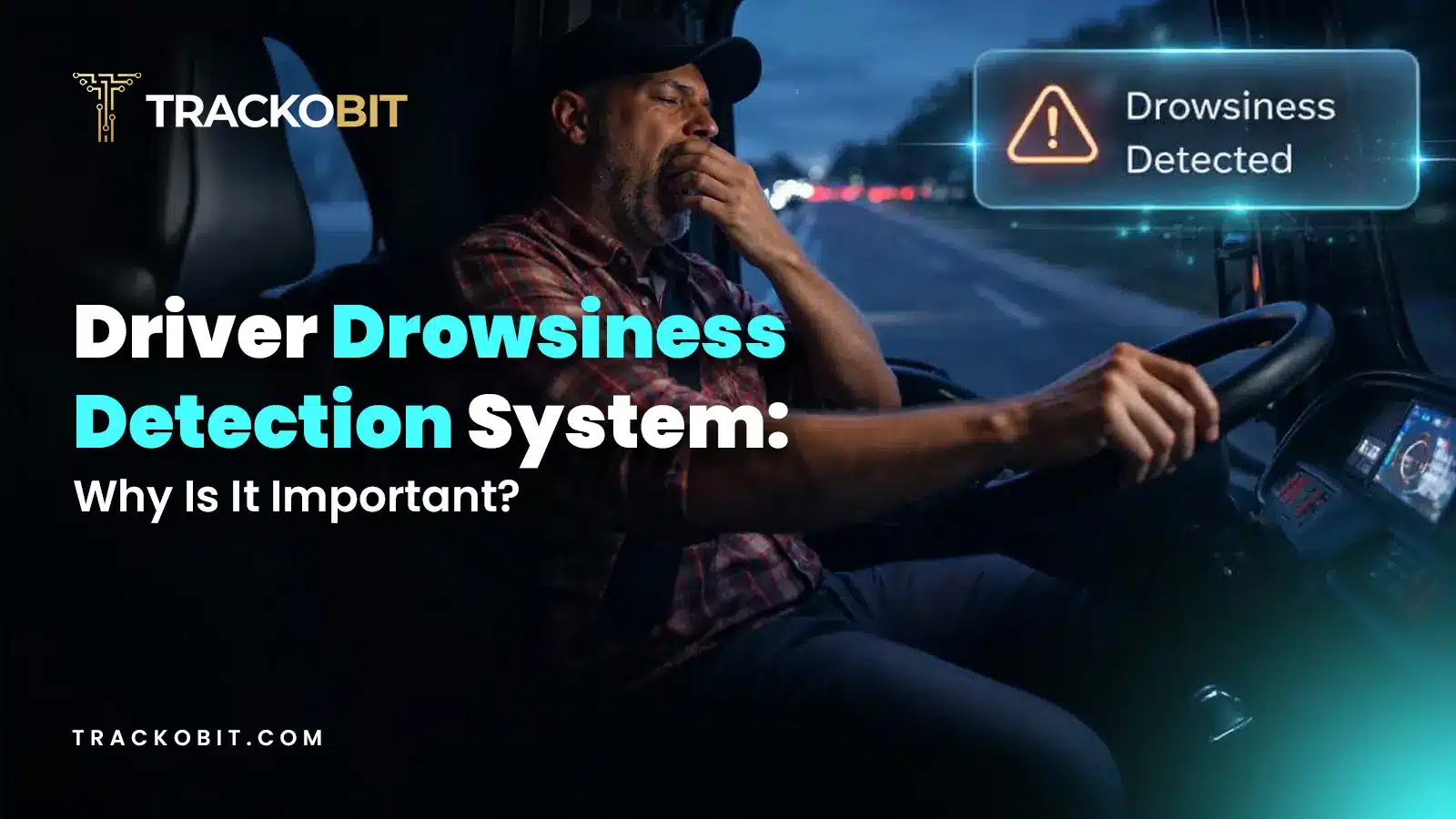
Why is Driver Drowsiness Detection System Important for Fleet Management?
Shemanti Ghosh February 4, 2026A driver drowsiness detection system is critical for fleet management. It helps prevent fatigue-related accidents and reduces operational risks through…
-
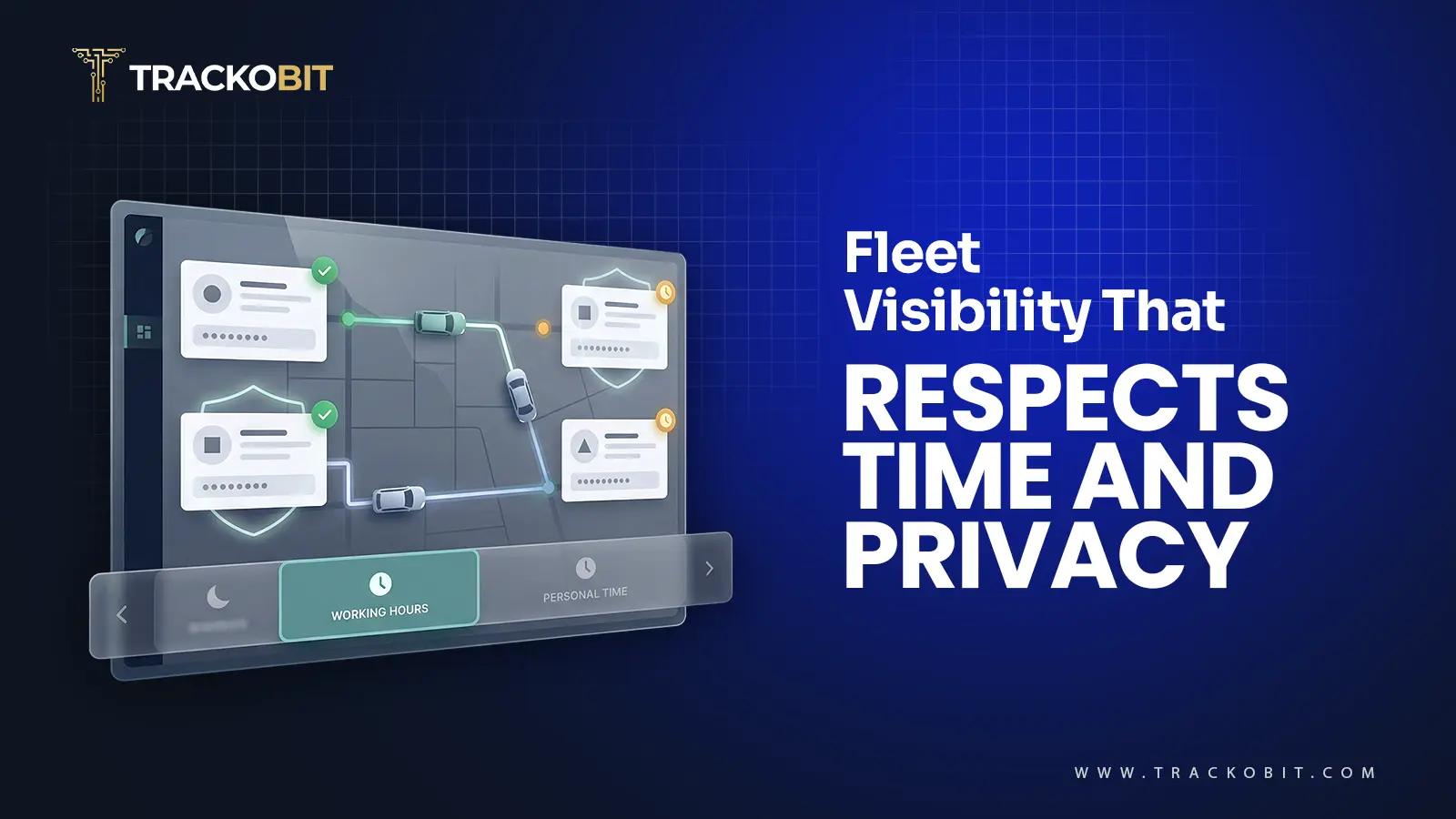
When Tracking Needs a Clock: Rethinking Fleet Visibility
Tithi Agarwal December 24, 2025Read on to understand why fleet tracking works better when it follows working hours. Because visibility should support operations, not…
-

What Makes TrackoBit’s Video Telematics Software Truly Next-Gen?
Shemanti Ghosh December 17, 2025TrackoBit’s video telematics software blends smart video intelligence with full server control. The result? Superior fleet reliability and safety.
-
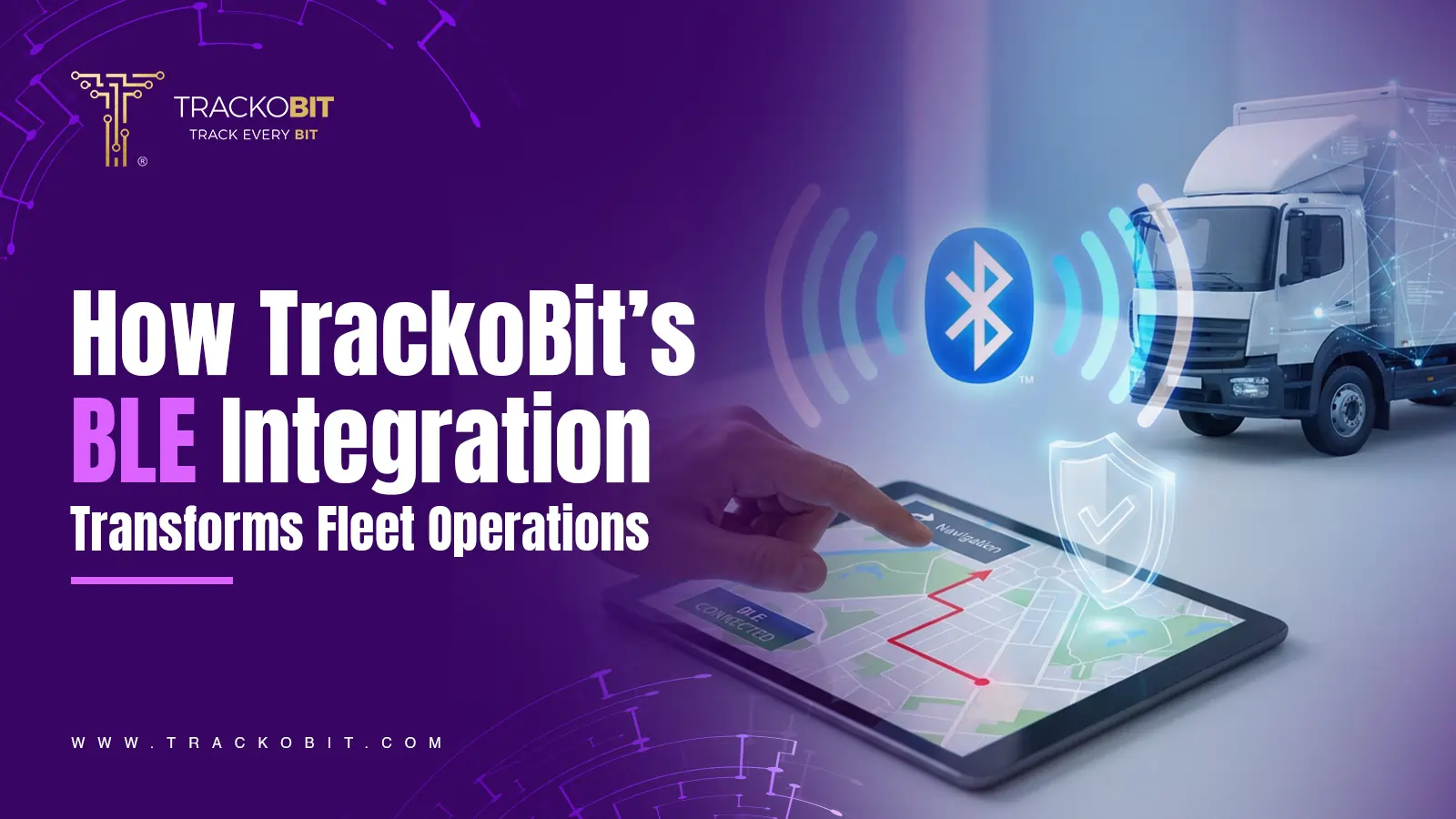
Plug, Pair, Perform TrackoBit Introduces BLE Sensor Integration
Tithi Agarwal November 26, 2025TrackoBit’s BLE Sensor Integration enables wireless, real-time monitoring with faster installs and accurate insights. It improves fleet efficiency, visibility, and…

Subscribe for weekly tips to optimize your fleet’s potential!
Your inbox awaits a welcome email. Stay tuned for the latest blog updates & expert insights.
"While you're here, dive into some more reads or grab quick bites from our social platforms!"Stay Updated on tech, telematics and mobility. Don't miss out on the latest in the industry.
We use cookies to enhance and personalize your browsing experience. By continuing to use our website, you agree to our Privacy Policy.





































